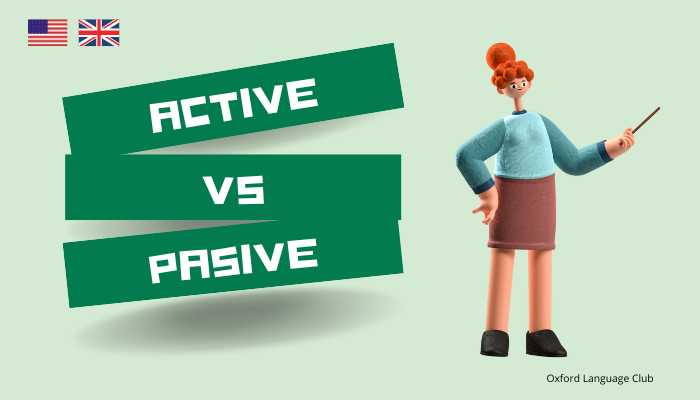Great site to keep my english skills updated for work and travel. I am really enjoying the lessons!
Maria C
 Argentina
Argentina


Take a sentence like “I want ice cream now.” It’s clear and straightforward—you know immediately that the subject, "I", "wants" an object, "ice cream". Now, recast this sentence, flipping it so that the object is in the position of the subject: “Ice cream is wanted by me now.” It isn’t just longer, but it’s also more detached, roundabout, and a little awkward, too.
Those two sentences are examples of the active voice and the passive voice. Certain kinds of writing are best suited for the active voice, while the passive voice is most appropriate for other kinds of writing. Understanding how, when, and why to use each is key to being an effective writer and speaker.
What is active voice, what is passive voice, and what are their different functions?
In the active voice, the subject is performing an action:
The dog chases the ball.
Notice how the subject, "dog", is performing the action, "chase", on the target of the action, "ball". This is a simple, direct example of the active voice.
In the passive voice, the action’s target, "ball", is positioned first as the focus of the sentence. The sentence gets flipped, and the subject is now being acted upon by the verb. In other words, the subject is passive:
The ball is being chased by the dog.
Active and passive are the two grammatical voices in English. Neither is inherently better than the other, but each is suited to certain types of writing.
Active and passive voice usage
Although you may have been told that writing in the passive voice is “bad writing,” it’s actually more nuanced than that. For most of the writing you do, like emails, blog posts, and many kinds of essays, the active voice is a more effective way to communicate the ideas, themes, and facts you’re expressing.
In certain kinds of writing, though, the passive voice is necessary. Think about how news reports about crime and incidents are usually written and delivered:
A car was broken into on Elm Street last night.
Cash was stolen from the register.
In these kinds of reports, the passive voice is used to emphasize the action that occurred rather than the individual or group who committed the action, often because the perpetrator isn’t known or hasn’t yet been found guilty of the offense.
There are other kinds of writing where the action itself, rather than the doer of the action, is the primary focus. These include scientific and, in some cases, historical reports. These use the passive voice to keep the reader’s focus on what has happened or is happening. Here are a few examples:
The rats were placed into the maze.
The governor was inaugurated at the statehouse.
Notice how in both of these sentences, the doer of the action isn’t mentioned. That’s because it’s either implied or irrelevant.
Posted by Oxford Language Club